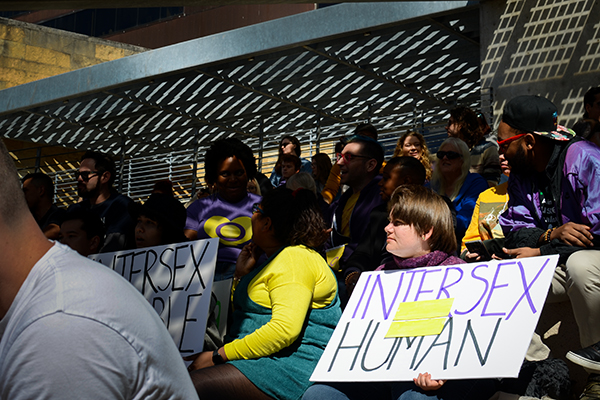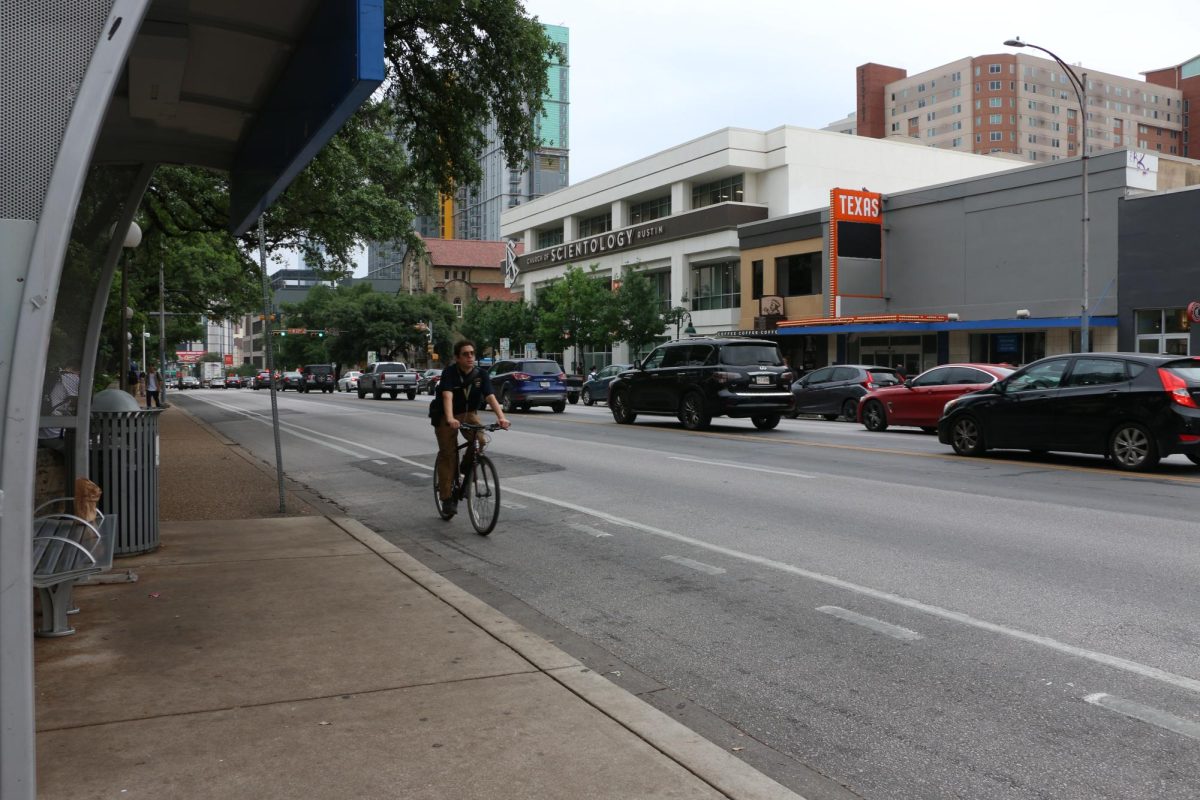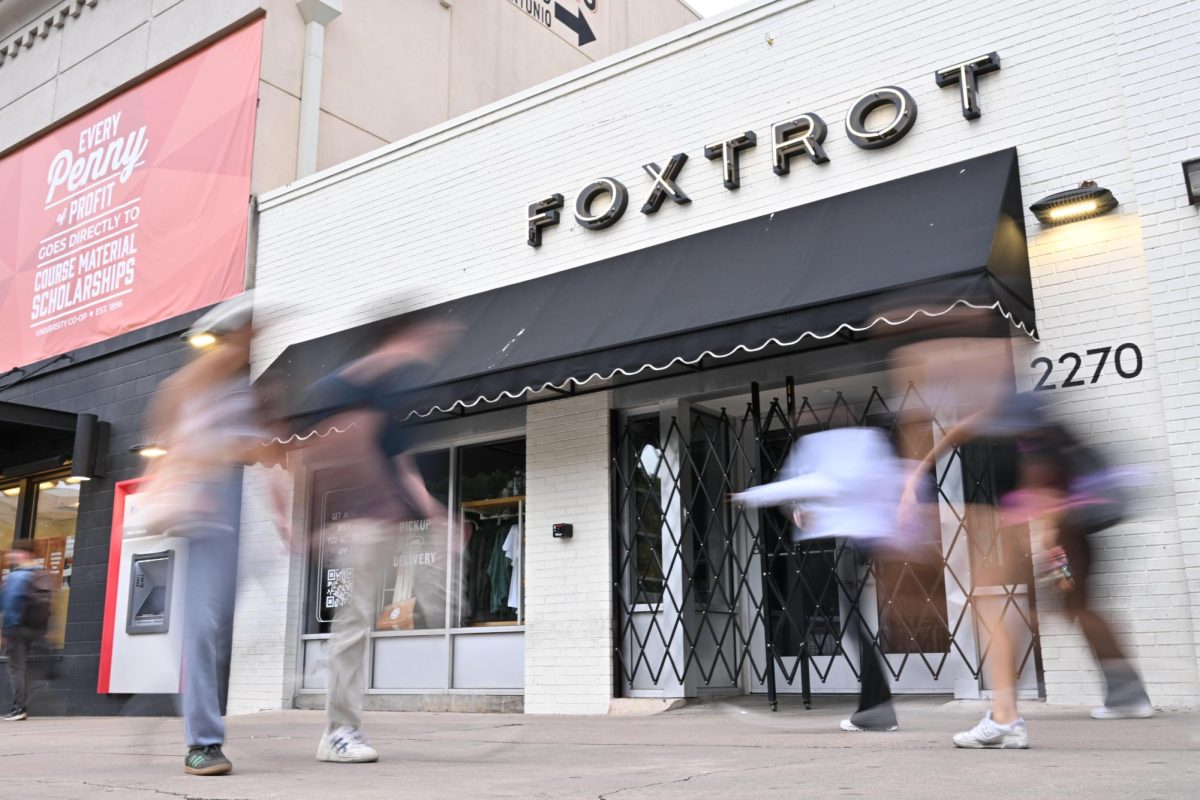Dozens of intersex individuals and allies chanted “Change our hearts, not our parts” at an Intersex Awareness Day rally Saturday.
During the rally, attendees advocated for bodily autonomy, adequate healthcare and representation of intersex people at Austin City Hall. Intersex is a term for people who are born with reproductive or sexual anatomy that are not typically female or male, according to the Intersex Society of North America.
Intersex activist Alicia Weigel said she organized the rally, which featured speeches from Mayor Steve Adler, medical practitioners and intersex individuals. Adler said Oct. 26 will be recognized as Intersex Awareness Day by the City of Austin in the future.
According to Human Rights Watch, 1 in 2,000 babies is recommended surgical intervention to make the body appear more in line with gender binary expectations. Weigel, who is intersex, said she struggled to conform to society’s rigid gender binary.
“When the doctors decide which of the two boxes to put intersex kids into … often times a choice is made that doesn’t align with that person’s gender identity,” Weigel said.
Weigel, who was born with XY chromosomesand is phenotypically female, said she also underwent nonconsensual removal of her reproductive organs when she was an infant.
Students who worked with Weigel attended the event, including government and sustainability studies junior Lindsey Asis. Asis said she became an advocate for intersex awareness after hearing Weigel’s story.
“It’s our duty as students to be there for as many people as we can, especially those who are marginalized,” Asis said.
Weigel said doctors often classify intersex identity as a “disorder” and lack legitimate medical reason for surgery besides coordinating biology to gender appearance. Charles Osterberg, chief of urology at Dell Seton Medical Center, said the medical community fails to care for intersex individuals.
“Surgery has lifelong ramifications for patients which may contradict the patient’s gender identity later in life,” Osterberg said.
Robyn Foley, youth member of the intersex advocacy group InterACT, said although doctors told them that they were not “really a boy,” they consider themselves lucky. They said some people are born with visible intersex traits that are instantly “corrected” for sex classification purposes. “If we stay this course, intersex people will continue to be mutilated and fall victim to this idea that our bodies are meant to be shamed and showcased in biology textbooks as disorders,” Foley said.
Editor's Note: This story has been updated to correct the spelling of Alicia Weigel's name.





















